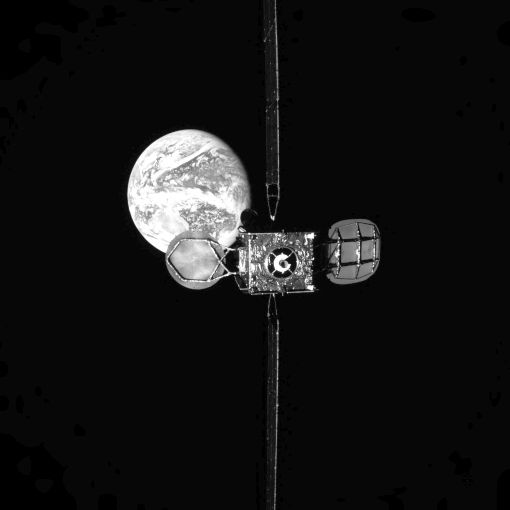On February 25, Northrop Grumman's MEV-1 tug achieved a historic milestone, docking the old Intelsat 901 satellite beyond the geostationary orbit.
Intelsat first customer of In-Orbit Servicing.
Several manufacturers have been working for several years on different orbital service projects for geostationary telecommunications satellites. In particular, Northrop Grumman (former Orbital ATK) has been developing since 2010 an electrically propelled bus: the MEV (Mission Extension Vehicle).
The U.S. operator Intelsat, seduced by this solution allowing to refresh its fleet, was the first to order two life-extension missions, for a lifespan of 5 years.
The first MEV was launched on October 9 using a Proton M / Breeze M, along with Eutelsat 5 West B satellite. Objective: the Intelsat 901 (IS-901) satellite sent to geostationary orbit in June 2001 by an Ariane 44L. After four months of cruising, the space tug arrived on February 5 in the vicinity of the old satellite, which had been moved last December to a “cemetery” orbit.
Automatic mode.
The grand premiere took place on February 25 at 7:15 (UTC) over the Pacific Ocean, recorded by Northrop Grumman’s on-board camera. The maneuver was piloted by MEV-1’s computer, under the control of teams from Northrop Grumman in Dulles and Intelsat in Tysons Corner, Virginia. Due to a lack of attachment available on the target satellite, MEV-1 “grabbed” the nozzle of IS-901’s main engine.
“It’s a very historic day,” said Joe Anderson, vice president of business development and operations at SpaceLogistics, a wholly-owned subsidiary of Northrop Grumman, which built the MEV 1 spacecraft. “It’s the first time that satellites have docked in the GEO orbit. It’s the first time we’ve ever docked with a satellite that was not designed to be dock with, and it’s the first time two commercial satellites have ever docked.”

